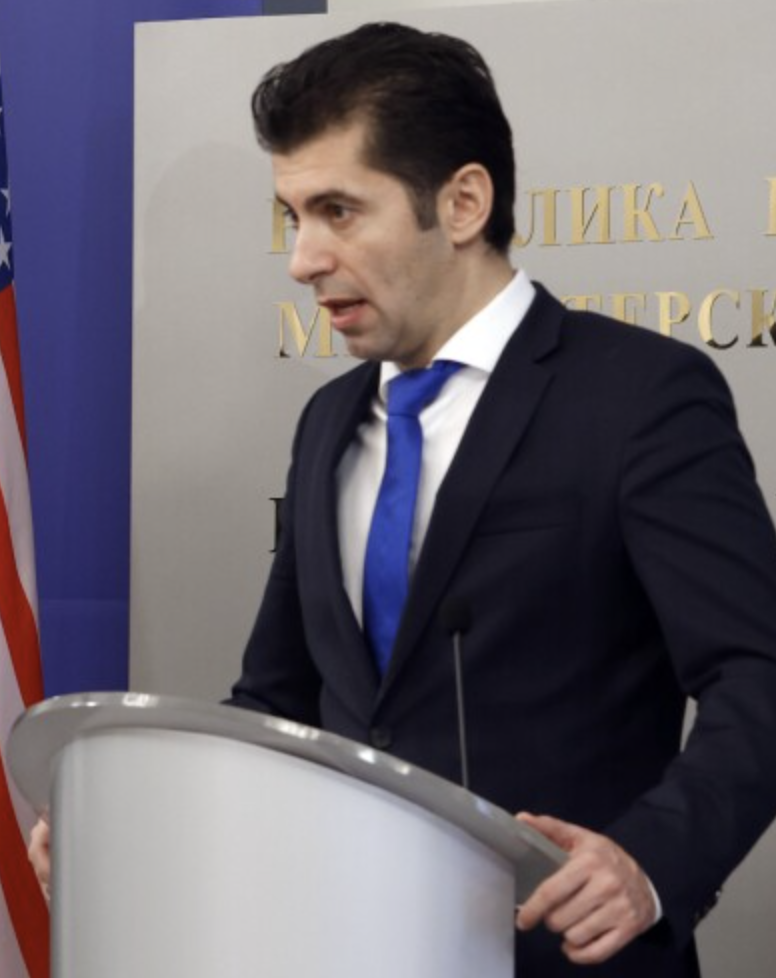Russian President Vladimir Putin has tried to exploit Europe’s dependency on Russian energy during his attempted conquest of Ukraine. Earlier this year, Putin issued a decree demanding that European countries pay for energy in rubles, the currency of Russia. More rubles from European countries for Russian energy would help the currency’s value rebound in global financial markets. Whoever didn’t comply faced having their energy supply from Russia cut off.
Kiril Petkov, prime minister of Bulgaria, spoke to me about Putin’s scheme and how Bulgaria defiantly rejected it, instead pursuing energy independence from Moscow. It was a difficult decision, given that, as Petkov told me, Bulgaria was one of the most dependent countries on Russian gas. But it was also necessary.
“When my government came to power, we faced the fact that Bulgaria had 95% dependency on Russian gas. This dependency was definitely a weakness, which Russia tried to [exploit],” Petkov said, noting that the country had no prior diversification strategy.
Bulgaria was one of the first countries Putin targeted. But rather than submit, the country stood firm against Putin. Bulgaria’s courage inspired Europe to shift away from Putin’s petrostate. The Eastern European country of nearly 7 million became a beacon of hope against Putin’s European energy extortion.

“We were one of the two first countries on the list to which Russia tried to impose the new rules with the ruble payment structure. This involved both the requirement to pay in rubles, where the foreign exchange risk was for Bulgaria, and introducing a third party with no liability to be the middle person to enact the payment, which was the Gazprom bank,” Petkov said. “Therefore, knowing that we are most dependent, they decided to try out first and we had to make a choice. We made the choice to stay strong, we had to abide by the law, we didn’t accept unilateral changes to the contract, or we had to budge in and say — our dependency is too high and we have no choice.”
“We knew as a Bulgarian government that if we had budged into this blackmail, it could have consequences not only for us but also for Europe — because we would have been the first one and this would have become a precedent,” said the prime minister, who assumed office in 2021. “At that point, we decided that we want to show Russia that they cannot use gas as a weapon and that international contract has to abide. We actually said: Please follow your contract. We will pay in U.S. dollars as per contracts. We don’t accept unilateral changes. Twenty-four hours later, they cut off the gas.”
Standing up to the Russian energy empire had consequences, and Putin ensured Bulgaria felt them. It’s hard to imagine such a situation occurring being an American, but Putin stopped the flow of gas into the country. It was a cruel and heartless action by a despotic tyrant. It was indicative of who Putin is and the totalitarianism he represents. Yet, under the courageous leadership of Petkov, Bulgaria did not flinch. The Eastern European country withstood Putin’s wrath.
One of the solutions to Bulgaria’s energy predicament? Liquefied natural gas, with a little help from Bulgaria’s friends.
“At this point, we had to figure out how to go from 95% dependency to 0% dependency overnight. Thankfully, with the assistance of the U.S. government and the European Commission, we were able to secure the first two LNG ships that were sent to Bulgaria,” Petkov said. “With the help of Turkey to place the ships at their ports, we were able to replace the Russian gas.”
Additionally, it was Bulgaria’s innovation that helped facilitate the pivot from Putin. The highly anticipated IGB Project, a 182-kilometer natural gas pipeline that sends gas from Azerbaijan to Bulgaria through Greece, was completed. This new pipeline is expected to deliver 3 billion to 5 billion cubic meters of natural gas annually and will become operational in September. It is expected to help Bulgaria, and subsequently Europe, meet its energy demands as it nears winter.
Furthermore, Bulgaria will continue to work with neighboring countries to achieve its energy goals, including gas imports from Azerbaijan and liquefied natural gas from Greece and Turkey. But, despite all of their progress, Petkov knows there are still many challenges ahead.
“Today, we are still facing difficulties concerning the winter. Fortunately, we were able to secure seven more ships of LNG,” Petkov said. “We hope that, with the Azeri gas, which is already flowing and will continue to flow through the Greek interconnector, which our government succeeded to build for six months, we will have enough energy supplies to face the winter and to show that Russia cannot use gas as a weapon and that they really cannot impose unilateral changes of contract.”
Petkov should take pride in Bulgaria’s efforts to pursue energy independence from Russia. It was a frightful task. While media attention centers on Putin and Ukrainian President Volodymyr Zelensky, the world forgets the precarious situations of other Eastern European countries due to the conflict. The world should applaud Petkov’s and Bulgaria’s courage for standing up to Putin. Bulgaria’s fortitude against the world’s leading gas exporter should be an example for the rest of Europe.
Petkov helped position his country at the forefront of toppling Putin’s energy behemoth. By being the first country to stand up to Putin and pivot away from dependency on Russian energy, Bulgaria has shown itself to be a trailblazer in both European energy independence and freedom.
*Note: Petkov’s government lost a vote of no confidence in June 2022. This interview was conducted on Aug. 2, Petkov’s last day in office. An interim government was established on Aug. 3, 2022. Petkov is running for prime minister again, and the election will be held on Oct. 2, 2022.

